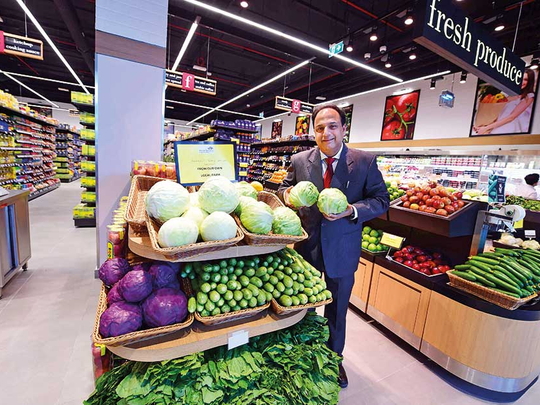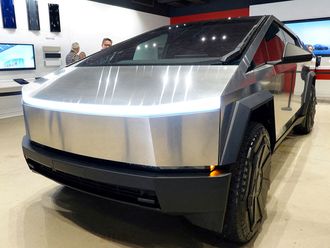
Dubai: From owning a farm to launching a supermarket chain seems like the most logical thing to do. And that is exactly what the Emirates Business Group has gone and done with its “Roseberry” supermarkets.
When it comes to trying to gain shopper attention and seek a competitive advantage, selling fresh off the farms does count for something.
“We have had three store openings in the last nine months and managed to pull in more than 200,000 customers,” said Anil Verma, CEO — Retail at Emirates International Group and a subsidiary of EBG.
“We are not looking to operate in the hypermarket class — our stores are about 10,000 square feet [930 square metres] and are more niche and cater to the high end. A typical hypermarket would be anywhere between 80,000-100,000 square feet [7,400 square metres-9,300 square metres].
“Our per store investments would be about Dh3 million and we could end up with about 25 locations. But each of those locations will, hopefully, feed us into a committed consumer base with a slightly higher spending average.”
And then there are the farms the Group operates. More than ever before, there is a growing base of UAE shoppers who do not mind shelling out that slight extra to have their fill of organic fruits and vegetables. What started out as an extremely niche demand has, in recent years, been co-opted by the big supermarket chains, who have dedicated areas selling organic produce.
This is where Verma expects to build a compelling unique selling point for Roseberry with the “fresh to market” option.
“The Group has been operating farms in Sharjah and Al Ain for a while,” he said. “So, our supermarket stocks will place much more emphasis on food and food-related products, say by 70 per cent. Around 35 per cent of our fruit and vegetable stocks will be sourced from our own farms.
Our store locations — such as Khalidiya in Abu Dhabi and Uptown Mirdif — make it worthwhile to stock up a higher percentage of fresh food items.”
(The margins can also be better on such categories and being locally produced the transportation and logistics costs are lighter.)
The UAE’s supermarket scene is one of the most intensely fought over. Carrefour had a big win recently by moving into Dubai Festival City (at the space earlier occupied by Hyper Panda). The Lulu Group has committed to a major investment — of around Dh1 billion — on a mall in Dubai Silicon Oasis and which will obviously feature its hypermarket. And the Group confirmed there will be no easing on its plans to add more to the UAE network where possible.
Mid-tier operators are also doing their bit as new buildings get complete elsewhere in Dubai, Abu Dhabi and the other emirates. Single location operators are, not surprisingly, feeling the pinch.
“Being part of a bigger group, funding is not a problem,” said Verma. “We do have plans for a UAE-wide presence, but selectively. There is no point in seeking locations where there is so much of overcrowding with supermarkets. It’s still a new concept Roseberry offers and we will work on consumers to shift their loyalty.
“The return on investment in the supermarket business is somewhere between five to six years and with a break even point at the three-year mark. We aim to meet those targets.”
These days, any supermarket worth its name should have a hot-food counter or bakery as a value-add. This is where Roseberry goes the full distance, through an arrangement with The Great Harvest, a US based bakery chain. “They have more than 250 locations in the US and they will be part of our supermarkets,” said Verma. “Bakeries do provide a good margin.”












